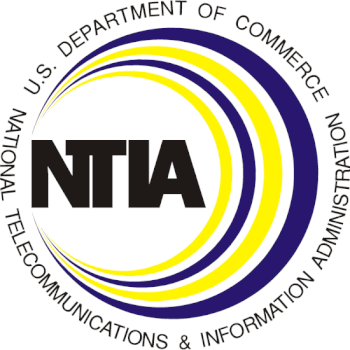
HC2 Broadcasting Holdings has requested that the FCC grant Low Power Television (LPTV) stations permission to transmit a 5G signal
We value your privacy
We use cookies to enhance your browsing experience, serve personalized ads or content, and analyze our traffic. By clicking "Accept All", you consent to our use of cookies.
We use cookies to help you navigate efficiently and perform certain functions. You will find detailed information about all cookies under each consent category below.
The cookies that are categorized as "Necessary" are stored on your browser as they are essential for enabling the basic functionalities of the site. ...
Necessary cookies are required to enable the basic features of this site, such as providing secure log-in or adjusting your consent preferences. These cookies do not store any personally identifiable data.
This site uses essential cookies; examples are:
Authentication Cookies: These are used to identify and authenticate users after they log in to a secure website area. Without these, users cannot stay logged in as they navigate between pages.
Session Cookies: These cookies allow users to move between site pages without having to log in again or reselect preferences. They are often used for shopping carts, maintaining user input across forms, or remembering filter selections during a session.
Security Cookies: These cookies are essential for maintaining the website's security by preventing cross-site request forgery (CSRF) or other attacks.
Load-balancing Cookies distribute web traffic across several servers to ensure the website remains available and performs well under load.
User Preferences Cookies: These remember a user's preferences, such as language or region settings, which are essential for providing a customized experience that the user has requested.
Cookies are Necessary for Compliance with Legal Obligations, such as those that ensure compliance with data protection laws, like tracking cookie consent preferences.
Functional cookies, also known as functionality cookies, enhance a website's performance and functionality. While they are not strictly necessary for the website to function, they provide additional features that improve the user experience.
Functional cookies help websites remember your preferences and provide more personalized and efficient user experiences. Unlike strictly necessary cookies, these often require user consent under various data protection regulations. Examples are:
Language Preference Cookies: These cookies remember the language you selected on a website so that it displays in your preferred language during future visits.
Location-Based Cookies: If you’ve set a preferred location for content (such as weather updates or local news), these cookies remember your choice.
Customization Cookies: These cookies allow the website to remember changes you’ve made to text size, fonts, or other parts of web pages that you can customize.
Login Information Cookies: While authentication cookies are necessary, functional cookies may remember your login credentials to facilitate quicker logins in the future (e.g., the “remember me” feature).
Theme or Layout Preference Cookies: If a website allows you to choose a preferred layout, color scheme, or theme, these cookies will remember your selection.
Multimedia Player Cookies: These cookies remember the settings you use for a video or audio player on a website, such as volume or playback quality.
Shopping Cart Cookies: Beyond basic session cookies, functional cookies can store items in your cart or wishlist across multiple sessions or visits, even if you’re not logged in.
Live Chat Cookies: If a website offers a live chat feature, functional cookies might remember your user information and chat history for your convenience during future interactions.
User Interface Enhancement Cookies: These cookies might store information on how you interact with the site (e.g., the collapse/expand state of a section) to enhance your browsing experience.
Analytical cookies are used to understand how visitors interact with the website. These cookies help provide information on metrics such as the number of visitors, bounce rate, traffic source, etc.
These cookies provide valuable insights into user behavior, which can be used to optimize website performance, improve content, and enhance user experience. However, due to privacy concerns, many regulations require that users be informed about analytical cookies and may need to consent before using them. Examples are:
Google Analytics Cookies: These cookies track page views, session duration, bounce rate, and user behavior on a website. Examples include _ga, _gid, and _gat, which distinguish users, track user journeys, and manage request rates.
Adobe Analytics Cookies: Similar to Google Analytics, Adobe Analytics uses cookies like s_vi, s_fid, and s_sq to gather data on visitor interactions, including time spent on pages, traffic sources, and click paths.
Hotjar Cookies: Hotjar uses cookies like _hjIncludedInSample to analyze user interactions through heatmaps, session recordings, and feedback tools. These cookies help identify how users navigate the site, where they click, and how far they scroll.
Piwik/Matomo Cookies: These open-source analytics platforms use cookies like pk_id and pk_ses to track visitor statistics, including the number of visits, duration, and referring websites.
Mixpanel Cookies: Mixpanel uses cookies like mp_ followed by a unique identifier to analyze user actions, track events, and understand user behavior within specific website features or applications.
New Relic Cookies: New Relic uses cookies like NRBA_SESSION_ID to monitor website performance, including page load times, server response times, and other technical performance metrics.
Kissmetrics Cookies: Kissmetrics uses cookies to track individual visitor behavior, such as visits to specific pages, conversions, and customer journey mapping.
Crazy Egg Cookies: Crazy Egg sets cookies like is_returning to analyze user interactions through tools like heatmaps, scroll maps, and user recordings to understand how users engage with different parts of a website.
Amplitude Cookies: Amplitude uses cookies to track user behavior and analyze customer engagement with various website or app features, helping businesses optimize product usage.
Statcounter Cookies: Statcounter cookies track visits, page views, and unique visitors to help website owners understand their audience and site performance.
Performance cookies are used to understand and analyze the key performance indexes of the website which helps in delivering a better user experience for the visitors.
No cookies to display.
Targeting cookies, are used to deliver advertisements that are more relevant to the user's interests. These cookies track a user’s browsing habits and behavior across websites, enabling advertisers to create targeted ad campaigns and measure their effectiveness
Advertising cookies help build user profiles, allowing advertisers to reach specific audience segments with tailored messages. Due to their tracking capabilities, these cookies are often subject to privacy regulations requiring user consent before deployment. Examples are:
Google Ads Cookies (DoubleClick): Cookies like IDE and DSID are used by Google’s DoubleClick to track users across websites and deliver personalized ads based on their browsing history. These cookies also help in measuring the effectiveness of ad campaigns by tracking conversions.
Facebook Pixel Cookies: Facebook commonly uses the fr cookie to track users’ behavior across different websites and display targeted ads within the Facebook platform. It also allows businesses to create custom audiences for their ad campaigns.
Twitter Advertising Cookies: Cookies like personalization_id are used by Twitter to deliver tailored ads to users based on their interactions with Twitter’s advertising partners and their activity on the platform.
LinkedIn Ads Cookies: LinkedIn uses cookies and li_oatml to track user interactions with LinkedIn advertising on LinkedIn and partner sites, deliver relevant ads, and measure campaign performance.
Amazon Advertising Cookies: Amazon uses cookies like ad-id and ad-privacy to track user interactions with Amazon’s ads across the web, helping to serve targeted ads based on users’ interests and previous purchases.
Criteo Cookies: Criteo uses cookies like uid and acdc to track users across different websites and deliver personalized ads based on their previous online behavior and purchase history.
Taboola Cookies: Cookies like t_gid and taboola_mk are used by Taboola to recommend content and ads to users based on their browsing behavior on Taboola’s network of partner sites.
Outbrain Cookies: Outbrain uses cookies like Obuid to track user behavior and recommend content and ads across its network of publishers, ensuring ads are relevant to user interests.
AppNexus Cookies: AppNexus uses cookies such as uuid2 to deliver targeted ads by tracking user behavior across different websites and app sessions.
Quantcast Cookies: Quantcast uses cookies like __qca to analyze user behavior and demographics, allowing for more precise ad targeting and audience segmentation.
The Trade Desk Cookies: Cookies like TDID are used by The Trade Desk to identify and track users across websites to deliver personalized ads and measure ad campaign effectiveness.
AdRoll Cookies: AdRoll sets cookies like __adroll to track users across multiple websites and deliver retargeted ads based on browsing behavior and interests.


HC2 Broadcasting Holdings has requested that the FCC grant Low Power Television (LPTV) stations permission to transmit a 5G signal

As the National Telecommunications and Information Administration (NTIA) Broadband Equity, Access, and Deployment (BEAD) program channels $42.45 billion into expanding broadband infrastructure across the United States, questions arise about its impact on telecom access programs serving rural and underserved communities. While BEAD aims to close the digital divide by enhancing network infrastructure, concerns persist that the prioritization of fiber-optic deployment may inadvertently limit alternative access technologies that better suit remote regions.

Expanding broadband access to unserved communities is one of the “most pressing tasks ahead,” Arielle Roth, nominee to head the

Headlines: A routine hearing to evaluate Arielle Roth, Trump’s nominee for Assistant Secretary of Commerce for Communications and Information, turned

In a pivotal session, the United States Supreme Court signaled its inclination to uphold the Federal Communications Commission’s (FCC) $8 billion annual Universal Service Fund (USF), a program designed to subsidize phone and internet services in schools, libraries, and rural communities.

Consumer advocacy groups and labor unions are urging the Federal Communications Commission (FCC) to reject T-Mobile’s proposed $4.4 billion acquisition of UScellular, citing concerns over potential service reductions, job losses, and decreased market competition.

The Supreme Court is set to hear arguments in FCC v. Consumers’ Research, a case challenging the constitutionality of the Federal Communications Commission’s (FCC) authority over the Universal Service Fund (USF). The outcome could significantly impact federal agency powers and the provision of telecommunications services nationwide.

The Federal Communications Commission (FCC) has launched an investigation into nine Chinese technology and telecommunications companies, including Huawei Technologies and ZTE, to assess whether they are circumventing U.S. restrictions designed to protect national security.

A recent analysis by The Pew Charitable Trusts reveals that cumbersome permitting processes are a significant barrier to the expansion of high-speed internet access across the United States.

The conclusion of the Affordable Connectivity Program (ACP) in June 2024 has raised significant concerns about the sustainability of low-cost broadband services in the United States. The ACP, established in December 2021, provided eligible low-income households with monthly discounts of up to $30 for internet services and up to $75 for those on qualifying Tribal lands.
